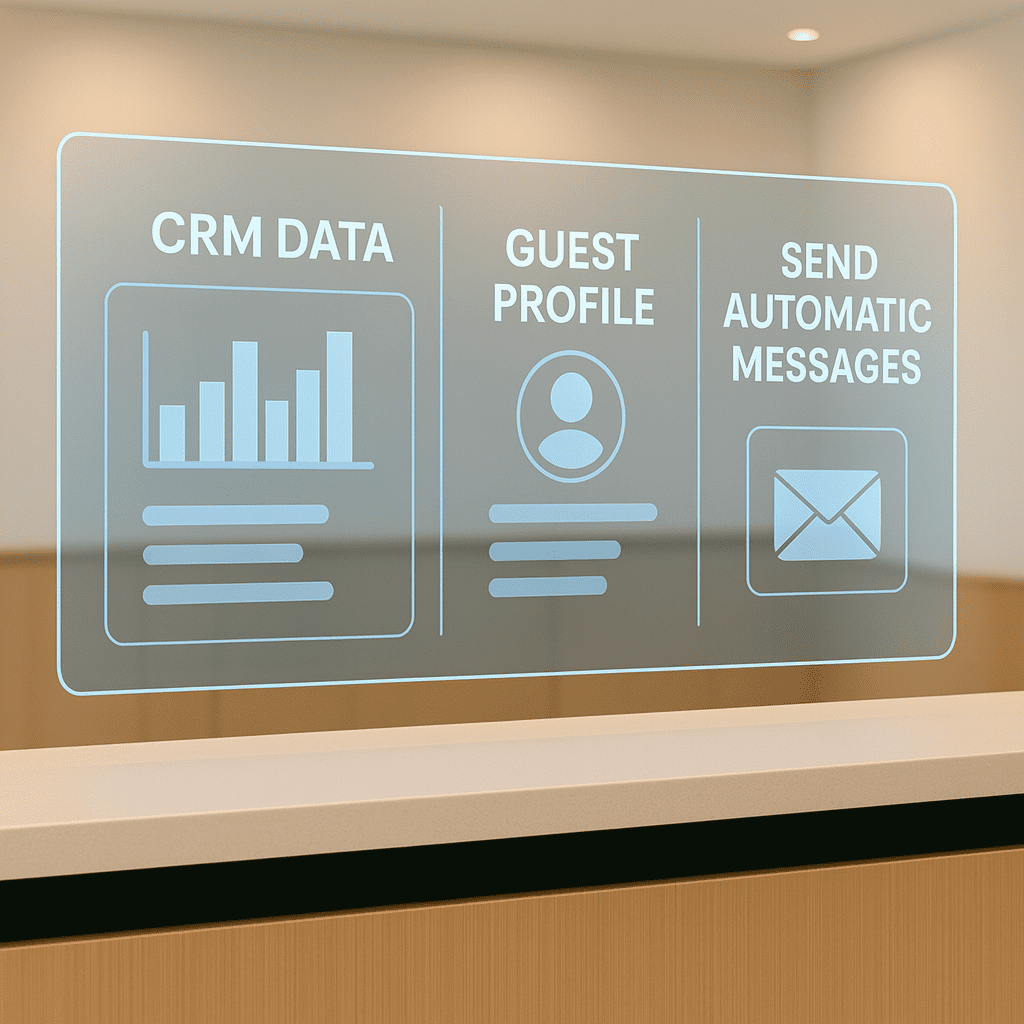
The art of personalisation: how to use data to create irresistible upsells in 2025
In the world of luxury hospitality—and beyond—upselling has long been a strategic lever for increasing revenue.
However, in 2025, we are witnessing a profound transformation of this practice: from a simple attempt at additional sales, it is evolving into a true art of personalization.
The secret behind this evolution lies in the smart, strategic use of data.
It is no longer about offering upgrades or services to every guest indiscriminately, but about deeply understanding the guest, anticipating their desires, and providing proposals that not only increase hotel profit, but most importantly, enhance the guest experience, making it feel unique and tailor-made.
This data- and technology-driven approach is essential for generating highly profitable incremental revenue at low acquisition costs.
Data as the new currency of hospitality
At the core of this revolution is data.
Every guest interaction, every booking, every expressed preference or observed behavior becomes a valuable piece of information.
The goal is to collect these fragments and build a complete, dynamic guest profile.
Primary data sources include:
- Booking data: such as room type, length of stay, seasonality, guest origin, and travel purpose (business, leisure, family).
- Past stay history: insights into previous preferences, purchased upgrades, used services, and spending behavior.
- Declared preferences: information guests have shared during past stays or at the time of booking (e.g., preference for high floors, quiet rooms, or specific amenities).
- Real-time and behavioral data: interactions with the hotel app, Wi-Fi, in-room terminals, or even thermostat adjustments.
By leveraging this data, hotels can segment their guests at a highly granular level.
It’s no longer just about distinguishing between business travelers and tourists, but recognizing, for example, a couple seeking romance, a family with small children, a digital nomad needing workspaces, or an eco-conscious traveler.
Artificial Intelligence: the engine behind predictive personalization
The sheer volume of available data would be overwhelming without the support of advanced technology.
This is where Artificial Intelligence (AI) and Machine Learning come in.
These algorithms analyze both historical and real-time data to identify patterns, predict future guest needs and preferences, and—crucially—determine which offer is most likely to be accepted by that individual.
AI enables a level of hyper-personalization that goes far beyond simple segmentation.
It can be used to suggest:
- A suite upgrade with a stunning view for a couple celebrating a special occasion, identified through booking notes or stay history.
- A spa package or post-travel massage for a guest arriving from a long-haul flight.
- Access to a co-working area or a room upgrade with a better workspace for a business traveler or digital nomad.
- Eco-friendly offers, such as sustainable mobility packages or local product experiences for guests who have shown interest in sustainability.
This AI- and data-based approach transforms upselling offers from generic pitches into thoughtful, relevant suggestions that feel more like attentive service than a sales attempt.
Integrated technology tools: the orchestra of personalization
Successfully implementing data-driven personalization requires a suite of integrated technology tools that work in harmony:
- Property Management System (PMS): The operational backbone of the hotel and a critical source of first-party guest data, including booking details and history. A modern PMS allows for real-time room and service availability, ensuring that proposed offers are always feasible.
- Customer Relationship Management (CRM): Focused on managing guest relationships, it collects and organizes information about preferences, past communications, and feedback. The CRM is key for automating targeted and personalized communication throughout the guest journey.
- Dedicated Upselling Software: Specialized platforms are designed specifically to automate the upselling process—from dynamic offer and price selection to personalized presentation across digital and physical channels. These platforms integrate data from both the PMS and CRM to deliver the right offer, at the right time, to the right guest. Real-time integration among these systems is critical for efficiency and consistency.
These tools allow for personalized offer delivery at multiple touchpoints during the guest journey:
- Before arrival, via email or the hotel app
- At check-in, including mobile check-in
- During the stay, through the hotel app, in-room smart TV or tablet, or even contextual messaging
- After the stay, to encourage future bookings or loyalty program enrollment
Hyper-contextual upselling, enabled by real-time data analysis, allows for offers that match the guest’s current situation (e.g., providing an umbrella and suggesting an indoor activity on a rainy day).
Tangible benefits of data-driven personalization
Adopting a data-driven approach to personalization in upselling delivers concrete results:
- Increased revenue: Data-driven upselling strategies can raise total revenue by 10% to 30%.
- Higher guest satisfaction: When offers are relevant and add genuine value, guests feel understood and appreciated, leading to greater satisfaction.
- Stronger loyalty: Companies that successfully implement personalized upselling strategies report a 75% increase in customer retention. Personalization fosters long-term relationships.
Smarter strategic decisions: Collected and analyzed data provides valuable insights into guest preferences and the effectiveness of different offers and channels, allowing hoteliers to continuously optimize their strategies.
The future of hospitality Is personalized
In 2025, the art of hotel upselling is inextricably linked to the ability to leverage data to offer personalized experiences.
AI, automation, and technological integration are no longer optional—they are essential tools to deeply understand each guest and present the perfect offer at the perfect time.
This approach not only maximizes earning potential but elevates the guest experience to new heights, building loyalty and strengthening the brand’s reputation.
The hotelier who masters the art of data-driven personalization is not just selling more—they are creating unforgettable stays, one guest at a time.


